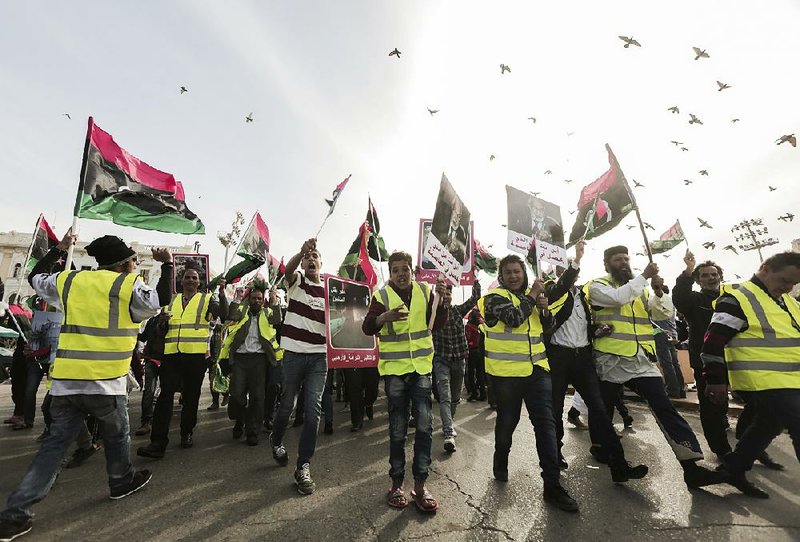President Donald Trump spoke earlier this week with a Libyan strongman whose forces are advancing on the nation's capital, the White House said Friday, in a move that threatens to undermine support for the country's internationally recognized government.
The strongman, Khalifa Hifter, who enjoys the support of Russia, France and Arab countries and controls much of Libya's east and south, launched a campaign to take the capital earlier this month. Libya's prime minister, Fayez Al-Sarraj, who is backed by former colonial power Italy and other European countries, has said talks with Hifter cannot begin until his forces are withdrawn to pre-offensive lines.
Trump on Monday discussed "ongoing counterterrorism efforts and the need to achieve peace and stability in Libya" with Hifter, White House Deputy Press Secretary Hogan Gidley said in a statement. Gidley called Hifter by the title "field marshal."
"The president recognized Field Marshal Hifter's significant role in fighting terrorism and securing Libya's oil resources, and the two discussed a shared vision for Libya's transition to a stable, democratic political system," Gidley said.
Hifter has claimed his offensive is intended to combat Islamist terrorism in Libya. The EU called on Hifter to stop his advance on Tripoli in an April 11 statement that didn't name him, after France and some other members objected.
A spokesman for Hifter's self-styled Libyan National Army, Ahmed al-Mismar, told Sky News Arabia that Trump's remarks would have a "positive impact in the war on terrorism" and showed that the U.S. is "convinced" Hifter's forces are fighting terrorists, militias and criminal gangs.
Acting Defense Secretary Patrick Shanahan told reporters Friday that "the military solution is not what Libya needs.
"What we've said before and what I do support is Field Marshal Hifter's support in terms of his role in counterterrorism, but where we need Field Marshal Hifter's support is in building democratic stability there in the region," he added.
He didn't directly answer when asked whether Trump had told him in advance that he would speak with Hifter. "The department and the executive branch are well aligned on Libya," Shanahan responded.
Information for this article was contributed by Tarek El-Tablawy, Salma El Wardany and Nadeem Hamid of Bloomberg News.
A Section on 04/20/2019

